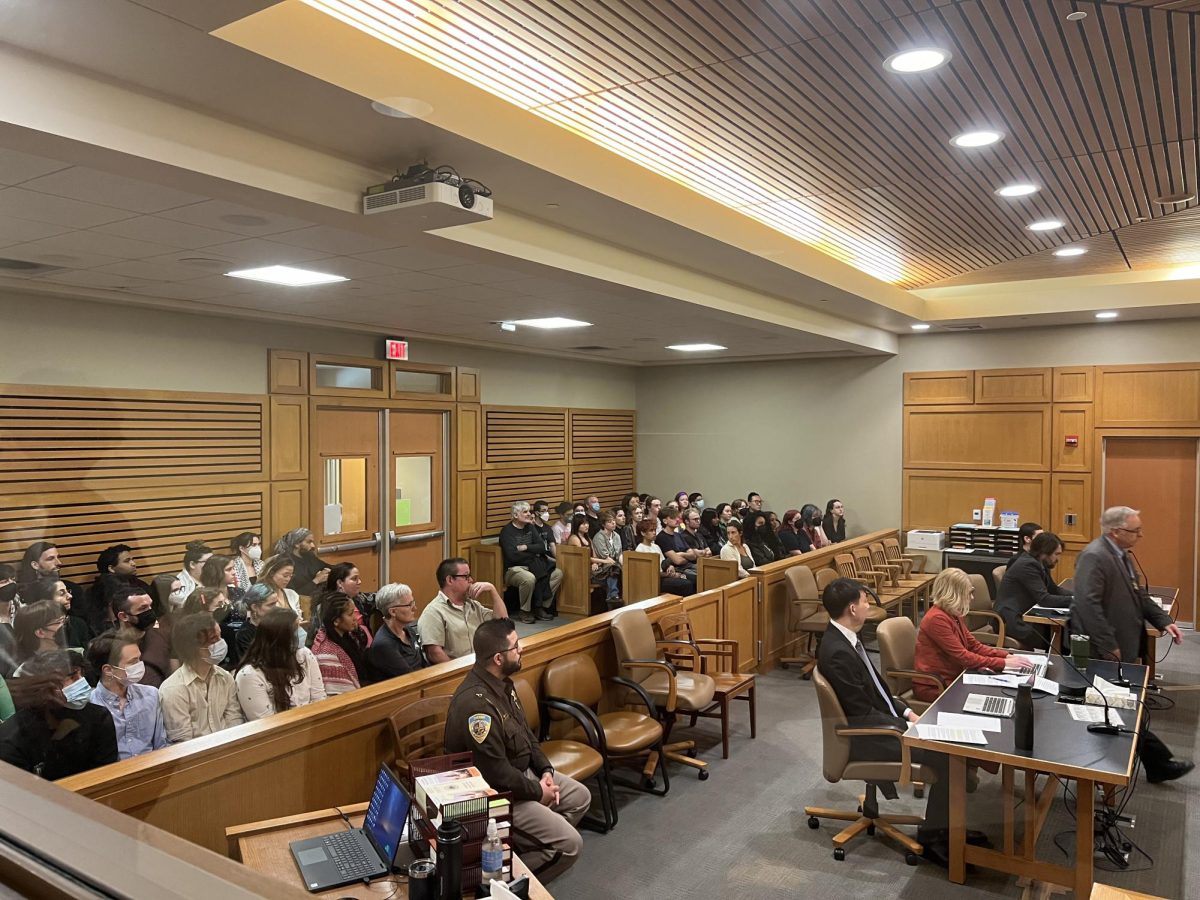The state may require all university residence-hall residents to get a meningitis shot if the state Legislature passes a bill currently under consideration.
A confined dormitory environment can increase student susceptibility to meningitis, which is spread through saliva and bodily secretions. Under a Senate bill originally proposed in May and now under review by the Senate, all students living in residence halls would be mandated to receive a meningitis vaccination.
This proposal, introduced by the drug manufacturer Aventis, faced scrutiny from Assembly members who feared that if passed, the bill would not just advocate the vaccination, but also promote Aventis and in turn make large sums of money for the company.
Since then, the bill has been altered so that University of Wisconsin schools must provide information to their students about the disease and the vaccination. In addition, the schools must keep records on whether students have received the vaccination. If passed by the Senate, the bill will go into effect in January.
Chris Schneider, committee clerk of the Senate Committee on Higher Education and Tourism, noted that the power behind the original bill has lost much of its force.
“It’s essentially been weakened a bit,” he said.
Fourteen states around the nation, including Pennsylvania, Maryland, Connecticut, Virginia and Florida, have made the vaccine a must for college students in hopes of reducing the relatively high risks of contraction, but students with conflicting personal or religious convictions may waive the requirements of the mandate.
According to the Center for Disease Control and Prevention, approximately 100 college students are infected annually with meningitis. Freshmen living in residence halls have a three times higher risk of infection, with an infection percentage of 5.1 out of 100,000 students, versus the 0.7 out of 100,000 rate of undergraduates not living in a residence halls.
“The risk in a dormitory is significantly higher,” assistant professor of medical microbiology Joseph Dillard said.
Within the past year alone, meningitis has struck at UW-Whitewater, UW-River Falls and UW-Eau Claire. In addition, a 20-year-old student at UW-Madison died last November due to the disease, as did two students at UW-Eau Claire in 2001.
Dillard noted that some people possess antibodies resistant to the disease, which spreads through respiratory and throat secretions. But when such people come in contact with others in a cramped environment, the bacteria can spread from them to those without immunities, resulting in infection.
For Shawn Bixby, a sophomore at the University of Maryland, a mandated vaccine makes her feel more comfortable on campus.
“I definitely feel safer knowing that the university wants fellow students to have the vaccine, and that I have it myself. It is nice to know that the university highly encourages it,” she said.
Meningitis infects in either a viral or bacterial form, penetrating the fluid of the spinal cord and the fluid surrounding the brain. The disease typically causes flu-like symptoms, along with a stiff neck, confusion and purple rash, all of which can develop within several hours. Meningitis is treatable, but it can result in death and permanent neurological disorders.
“If the government or university system has the power to enforce such a mandate, they definitely should put economical or other reasons aside because they alone hold the power to prevent something that is potentially fatal,” UW sophomore Meg Bradshaw said. “Statistics alone show the severity of meningitis in a college setting, so they should take the extra step to ensure the safety of students.”
Despite such apparent risks, Schneider does not think Wisconsin will require the vaccine but will probably pass the current bill to educate students and keep records of vaccinated students.
“[The risk of meningitis is] obviously something that we need to alleviate,” said Schneider.










